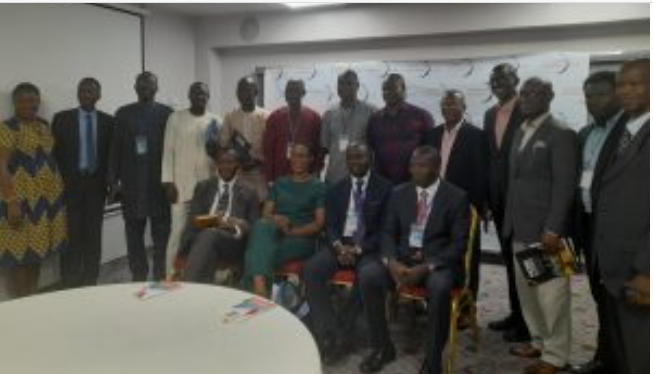Dr Oluseye Ajuwon, a lecturer of Economics at the University of Lagos, has charged the Federal Government to maintain good governance that ensures that public infrastructures are well protected, managed, and maintained.
Ajuwon gave the advice at the 2022 WorldStage Economic Summit (WES) with the theme: “Nigeria’s Economy: Bridging The Infrastructural Gap” on Wednesday in Lagos.
According to him, true patriotic leadership is most needed in ensuring sustainable infrastructure development.
Ajuwon said that infrastructure which include buildings, roads, power, transportation, communication, healthcare, education, water supply, sanitation, among others remain the basic physical and organisational structures and facilities.
These, he explained were needed for the operation of a society or enterprise.
Ajuwon, also a researcher, said that infrastructure remains the underlying foundation or basic framework upon which the economy of a country is built.
According to him, infrastructure is key to economic development, particularly as it relates to the construction, management, and regulation of infrastructure projects.
The lecturer said that the underdevelopment of physical infrastructures had been the major constraints confronting the Nigeria economic and social development over the years.
Ajuwon said those critical infrastructure gradually decayed over time due to neglect.
“The poor performance and inefficiency in the operation of the nation’s infrastructure has been described as major constraints to industrial performance and productivity growth.
“As a result, the average growth rate of the national economy has stagnated and stunted around five per cent for many years because the state of our infrastructure does not encourage investment, ” he said.
According to him, government, investors, lenders, and all stakeholders in project development must commit to providing pragmatic and sustainable infrastructure that meet international best standards.
Ajuwon advised that on-going and future developments in the country should be closely monitored while ensuring that the projects are awarded on merits, and practical timelines are given to contractors and strictly followed for completion.
The researcher urged the government to continue its fight against corruption, address excessive spending in governance and direct saved resources to providing infrastructures for the overall growth of the economy.
He maintained that government facilities should be appropriately managed and put into effective and efficient use while abandoned projects should be resuscitated, and less impactful projects, where necessary, should be curtailed.
“It is expected that Public Private Partnership (PPP) could be a viable avenue for securing the private partnership in the management of these projects.
“Credit facilities for infrastructural projects should be made easily accessible with minimum interest rates, as this will serve as a boost to investment and PPP in infrastructural projects.
“The government could also consider giving tax incentives, developing residential housing estates around the project locations, amongst other things.
“This will drive human traffic to those project areas and make the project more viable, practicable, feasible, and appealing to the private sectors,” he said.
In his welcome address, Mr Segun Adeleye, President/Chief Executive Officer (CEO), WorldStage, said that the country is currently facing huge infrastructural gap that had hindered the desire to exploit its rich natural and human resources to stimulate development.
Adeleye said that Nigeria was ranked number 116 competitive nation in the world out of 140 countries in the 2019 Edition of the Global Competitiveness Report published by the World Economic Forum, largely due to the poor state of its infrastructure.
He noted that the money needed to attain the level of infrastructure desired would not come from the Federal budget; hence the approval for the creation of the Infrastructure Concession Regulatory Commission (ICRC) in 2021 by President Muhammadu Buhari.
According to Adeleye, the country is being availed with huge potential in the PPP option by ICRC to address infrastructure deficit.
“Unlike government funding, private financing sources portend an uncapped and near-limitless pool of funding for investments in infrastructure through banks, bonds, among others.
“The focus of the WES 2022 is to examine the infrastructural gap challenges and proffer solutions that would significantly help at improving prospects of achieving the nation’s economic potential,” he said.
A panel discussion led by Mr Dare Mayowa, Publisher, Global Financial Digest, resolved that Nigerians must recruit the right leaders that would make various institutions work effectively and efficiently.
This, he noted would fill the infrastructural gap in the country.
Other discussants at the panel were; Mr Soji Adeleye, CEO Alfecity Institution, Mrs Maureen Chigbo, Publisher, Realnews Managazine, Dr Joy Ogaji, CEO, Association of Power Generation Companies, Nigeria.
